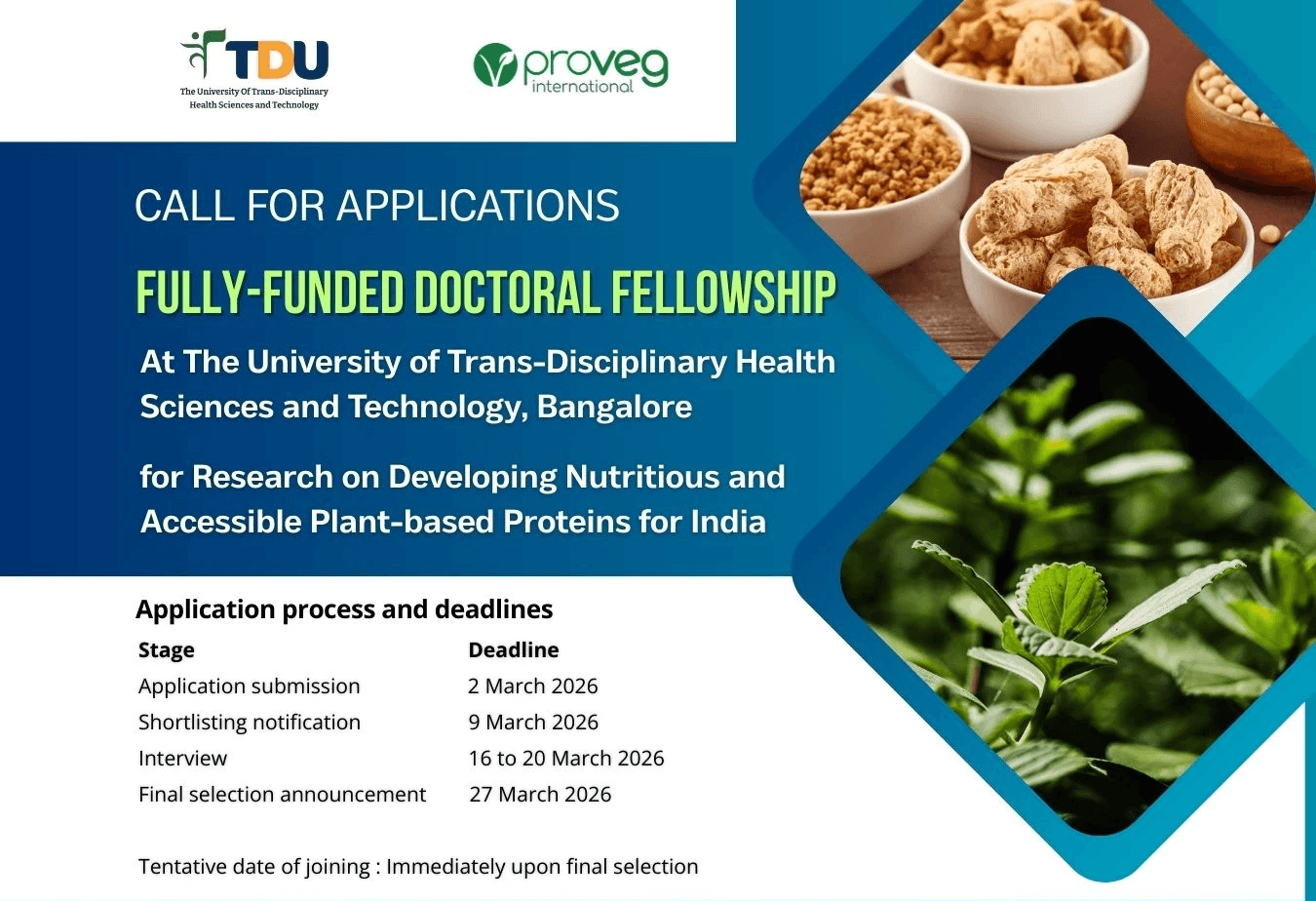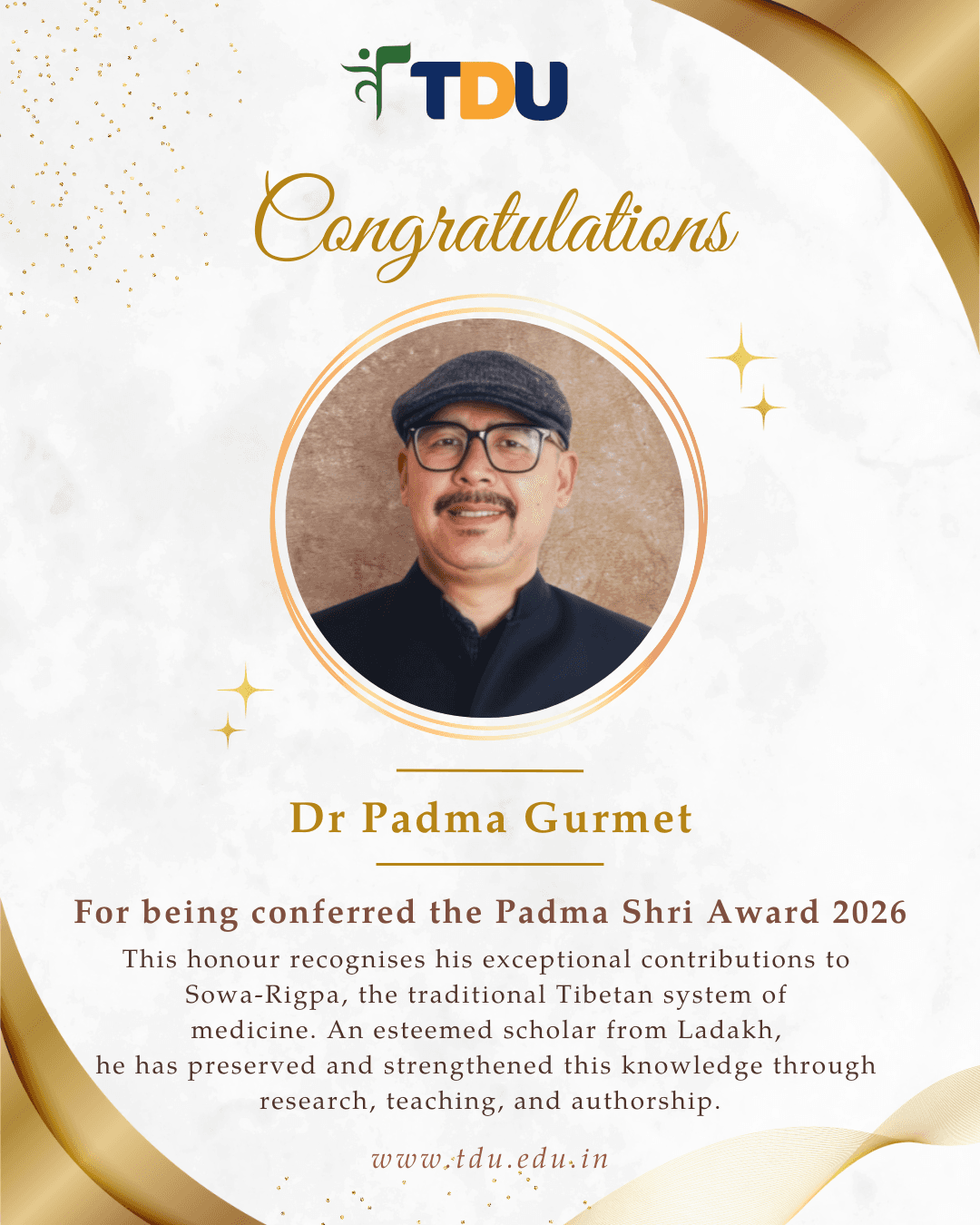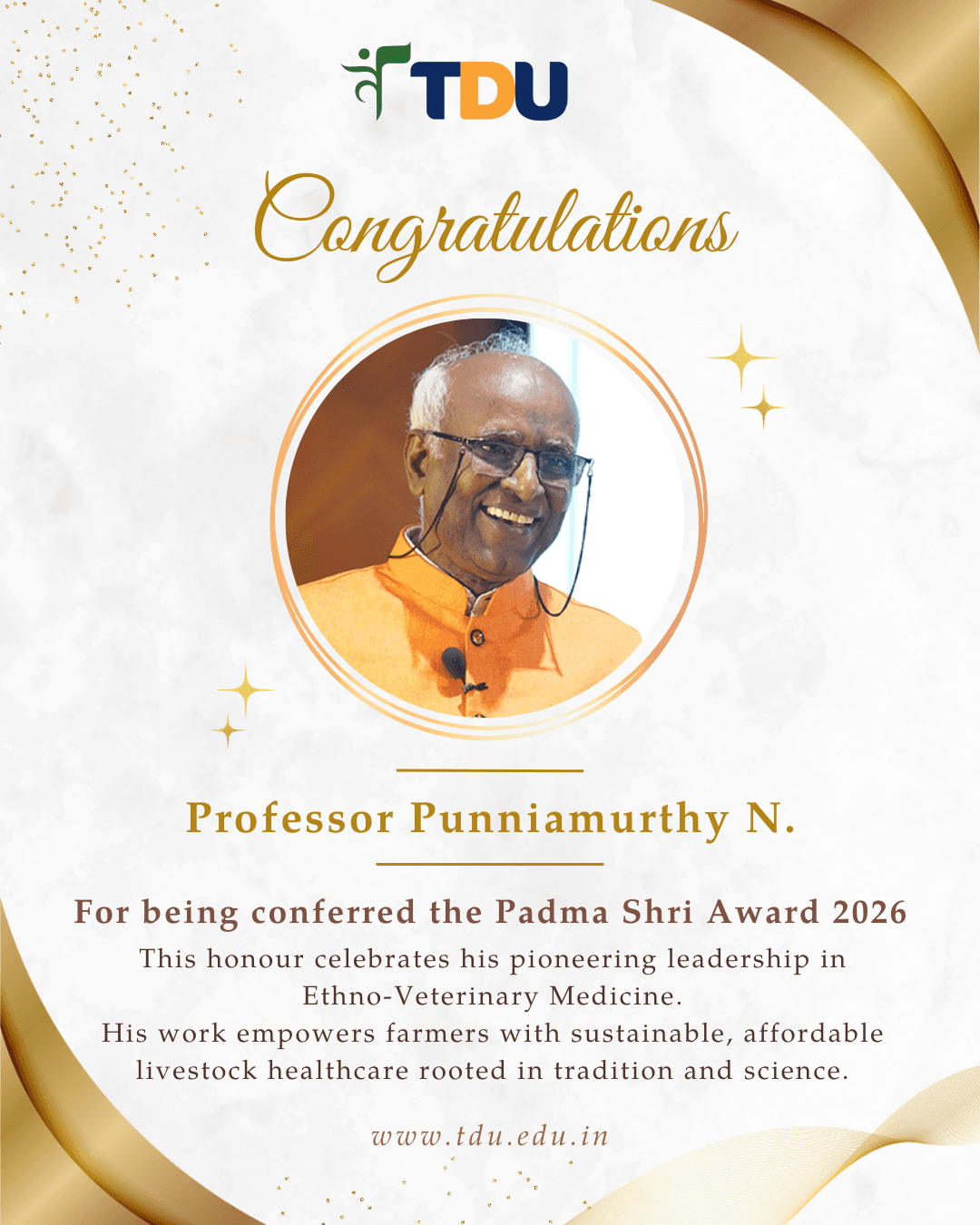TDU News
Nourishing the Future: Rethinking Food Systems for Health, Livelihoods and the Planet
Jul 23, 2025
Highlights from the Food Systems, Biodiversity and Nutrition Symposium, June 2025
In June TDU, in collaboration with the Natural Resources Institute of the University of Greenwich, UK, hosted the Food Systems, Biodiversity and Nutrition Symposium to explore the efforts that are necessary to reshape our food systems to support human wellbeing, create livelihoods and promote environmental sustainability.
From insightful keynote speeches to interactive experiences, the symposium unpacked how the foods we grow, share and consume impact not just our health but, also our ecosystems, cultures and communities.
Why Diversity in Food Important
Today's food choices are becoming increasingly uniform, relying on a small number of crops and industrial systems. This narrow approach endangers nutrition, threatens livelihoods, and strains the planet's resources.
The symposium emphasized a simple but powerful idea that food diversity, rooted in ecological and cultural richness is central to nourishing resilient societies. Participants explored how local food traditions, community efforts, and policy innovations can help reimagine food systems for a healthier future
Highlights from the Session
Session 1: Transforming Food Systems
Dr Suresh Babu ,Senior Research Fellow and Head of Capacity Strengthening , International Food Policy Research Institute, Washington DC, USA (IFPRI) kicked off the day with global lessons in connecting food with nutrition and health. He spoke about climate-smart agriculture, gender equity, nutrition education and multi-stakeholder collaboration at local, national and global levels.
Prof Trilochan Sastry shared perspectives from his experiences working with farmers in Anantpur district of Andhra Pradesh, how value-added products and co-operative approaches have initiated a new wave of innovation in improving farmer livelihoods and prosperity
Prof Darshan Shankar, Vice-Chancellor TDU, shared the organization’s experiences from three decades of revitalising local health traditions, research blending science and indigenous knowledge, in-situ conservation and outreach activities; all even more critical as we navigate newer challenges accelerated by climate change
Pawan Agarwal, Founder & CEO Food Future Foundation discussed how coalitions between farmers, policymakers and civil society can build momentum for real change
Dr Abdul Kareem, Associate Professor TDU, spoke about the organisations’ outreach activities in documenting and disseminating community knowledge in collaboration with local community-based organisations and National Biodiversity Authority through People’s Biodiversity Register (PBR). He shared insights on how the PBR serves as a tool of resilience, helping communities in food and nutrition security, preserving knowledge, improving access and benefit-sharing.
Dr Apurba Shee, Professor of Applied Economics, Food & Markets Department, Natural Resources Institute (NRI), University of Greenwich and Policy Fellow at the UK Ministry of Justice, shared experiences from his work promoting millet enterprises through women’s collectives in India, its economic and empowerment impact in the communities
Session 2: Linking Biodiversity, Nutrition & Public Health
Dr Shridevi Annapurna Singh, Director CSIR- CFTRI, Mysore shared experiences on the impactful intersection of Food Systems, Nutrition and Environmental Health. She spoke about field interventions, local health traditions and local food availability making positive impact in health, nutrition and livelihoods alongside improving agricultural conditions.
Prof Maruthi Gowda, WP-4 leader, Natural Resources Institute (NRI), University of Greenwich unpacked grassroots and global perspectives on biodiversity, setting the stage for a lively poster session featuring student research. He shared experiences in managing emerging viral diseases in tomatoes and cucumber family vegetables not just affecting human health but also has planetary implications
Prof Nazanin Zand, Food & Markets Department, Natural Resources Institute (NRI), University of Greenwich spoke on the future trends in Food & Drink sector. She spoke about moving from one-fits-all to personalised nutrition solutions which have a multi-dimensional impact with respect to nutrition, fair economies, environment and culture
Vinay Kumar, Head Research & Advocacy, Akshaya Patra Foundation shared insights and experiences from their midday meal program for school children ,benefiting 11 crore children across the country
Prof Sheryl Hendriks, Director, Natural Resources Institute (NRI), University of Greenwich spoke about the future of food systems, drawing attention to the impacts of climate change, geo-political situations, policy and governance on human and planetary health, stressing on the accountability of all stakeholders, budget-holders and effective partnerships that are country-specific, culturally acceptable and generate positive impact in shaping the future of food for all.
Prof Gurmeet Singh took the participants through his work on Food First Solutions which have a direct impact on human, societal and planetary health, deriving from design, wellness and systems thinking to translate ideas and concepts in to innovative products and services. He further shared TDU’s interventions ,innovations and sustainable solutions to make nutrition accessible for all
Session 3: Panel Discussion – The Future of Protein
In an interesting panel discussion, scientists and innovators explored alternative proteins as a key solution to food sustainability. Moderated by Prof Gurmeet Singh, the session featured experts like Dr Padma Ishwarya and Professor Parag Acharya, who discussed how plant-based and cultured proteins can reduce environmental strain and improve food access worldwide.
Experiences Beyond the Discussion
To make learning hands-on, the symposium featured:
A guided walk introducing medicinal and wild edible plants
Tasting of dishes prepared with traditional wild edibles and modern alternative proteins at the TDU Scientific Kitchen
Interactive demos of TDU’s plant and food databases
Student poster showcase
A Global Call to Action
The symposium wasn’t just about ideas—it was about action. Through collaboration, innovation, and tradition, we can redesign our food systems to nourish every human, preserve numerous cultures and ecosystems. The future of food is diverse, resilient, and rooted in respect—for nature and for one another.Whether you’re a researcher, policymaker, farmer, student, or simply a curious foodie, the message was clear: a more resilient and diverse food future is possible if we work together.
Stay tuned for follow-up events, recordings, and resources from the symposium on our media platforms.
Call for Applications : Fully - Funded Doctoral Fellowship
Feb 16, 2026
Read more
Youth Network – India Food Systems Transformation Hackathon 2026
Feb 6, 2026
Read more
Coexistence Champions Programme - Call for applications open
Feb 6, 2026
Read more
Heartfelt Congratulations to Dr Padma Gurmet on Being Conferred the Padma Shri Award 2026
Jan 27, 2026
Read more
Congratulations to Dr N. Punniamurthy on being conferred the Padma Shri 2026!
Jan 27, 2026
Read more
Keep your mind sharp as you age – Join the Zero-cost MEDHYA Brain Health study in Bengaluru
Jan 10, 2026
Read more









